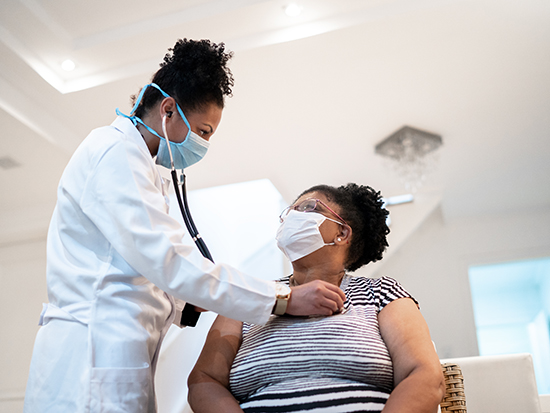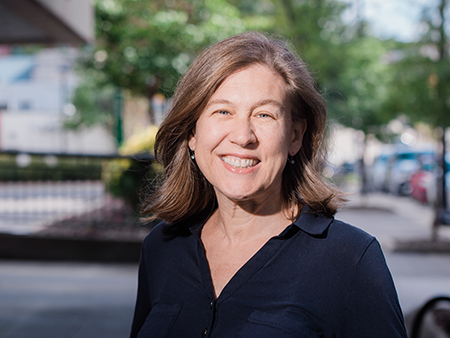 The NIH grant creates Multiple Chronic Disease Centers around the nation to target chronic disease in minority populations.The University of Alabama at Birmingham, in partnership with other leading academic centers in Alabama, Mississippi and Louisiana, will establish the Deep South Center to Reduce Disparities in Chronic Diseases with a grant from the National Institutes of Health.
The NIH grant creates Multiple Chronic Disease Centers around the nation to target chronic disease in minority populations.The University of Alabama at Birmingham, in partnership with other leading academic centers in Alabama, Mississippi and Louisiana, will establish the Deep South Center to Reduce Disparities in Chronic Diseases with a grant from the National Institutes of Health.
The National Institute on Minority Health and Health Disparities has awarded funds to UAB and 10 research institutions to establish and support regional comprehensive research centers on the prevention, treatment and management of comorbid chronic diseases that disproportionately affect populations with health disparities.
These Multiple Chronic Disease Centers received grants, totaling almost $205 million including funds committed over a five-year period, that will facilitate research on chronic diseases including obesity, diabetes, hypertension, coronary heart disease, congestive heart failure, chronic kidney disease, chronic liver disease, stroke and certain cancers.
The Deep South region has the highest rates of obesity, diabetes and hypertension in the nation. As a result, life expectancy in the Deep South is substantially lower than in other regions, and this discrepancy is even greater for Black Americans.
“Promoting health equity and eliminating disparities will require a precision public health approach,” said Andrea Cherrington, M.D., professor in the Division of Preventive Medicine in the Department of Medicine, UAB Marnix E. Heersink School of Medicine and the contact primary investigator for the Deep South Center to Reduce Disparities in Chronic Diseases. “This requires providing the right intervention to the right population at the right time to reduce the burden of cardiometabolic diseases on minority populations across the Deep South.”
UAB will partner with Tuskegee University, the University of Mississippi Medical Center and Pennington Biomedical Research Center, a campus of Louisiana State University, along with regional non-academic partners, to extend cardiometabolic research into real-world community and clinical settings. Primary investigators from these institutions are Clayton Yates, Ph.D., Tuskegee; Mario Sims, Ph.D., UMMC, and Peter Katzmarzyk, Ph.D., PBMC.
The center’s UAB leadership team includes Monica Baskin, Ph.D., Orlando Gutierrez, M.D., and Gareth Dutton, Ph.D., from the Department of Medicine.
The center will house three cores — an investigator development core, a community engagement core and an administrative core to achieve these specific aims:
- Create intellectual synergyby linking investigators across the region and coordinating with existing centers to identify areas of research collaboration and innovation
- Expand and diversify the region’s workforceof investigators focused on health equity research in chronic disease
- Promote equitable collaborationsbetween researchers and non-academic partners and stakeholders in all phases of research
- Advance empirical knowledgethrough three rigorous and innovative research projects that address cardiometabolic health disparities
- Promote sustainable impactthrough widespread dissemination of center-generated scientific discovery across the region
 Andrea Cherrington, M.D., Division of Preventive Medicine.The center will launch three interventions across the region. The first will investigate community-based strategies to reduce cardiometabolic disease by working with Alabama and Mississippi Cooperative Extension Services to combine lay health coaches and community gardens to encourage improving lifestyle and health behaviors.
Andrea Cherrington, M.D., Division of Preventive Medicine.The center will launch three interventions across the region. The first will investigate community-based strategies to reduce cardiometabolic disease by working with Alabama and Mississippi Cooperative Extension Services to combine lay health coaches and community gardens to encourage improving lifestyle and health behaviors.
Another project will look at the effect of weight loss on improving cardiometabolic risk for patients with obesity and diabetes. This project will remotely deliver weight-loss programs using patient portals, augmented with health coaches embedded in primary care.
A third project, focused on diabetes, will address food insecurity and transportation barriers. This project will include health coaching, remote patient monitoring and grocery delivery systems.
The center is enlisting the participation of community partners across the region, in the areas of health care, housing, food banks and more. The center also plans to boost research in social determinants of health by identifying and encouraging young investigators with interest in the field through pilot grants designed for younger researchers.
“Given the significant health disparities in cardiometabolic diseases evident in the Deep South, the strong research base present at the partnering institutions, and the potential to expand and focus these energies on health equity research, the Deep South Center to Reduce Disparities in Chronic Diseases is ideally situated to inform research, clinical care and policy to promote health equity and reduce cardiometabolic disparities in a region of tremendous need,” Cherrington said.